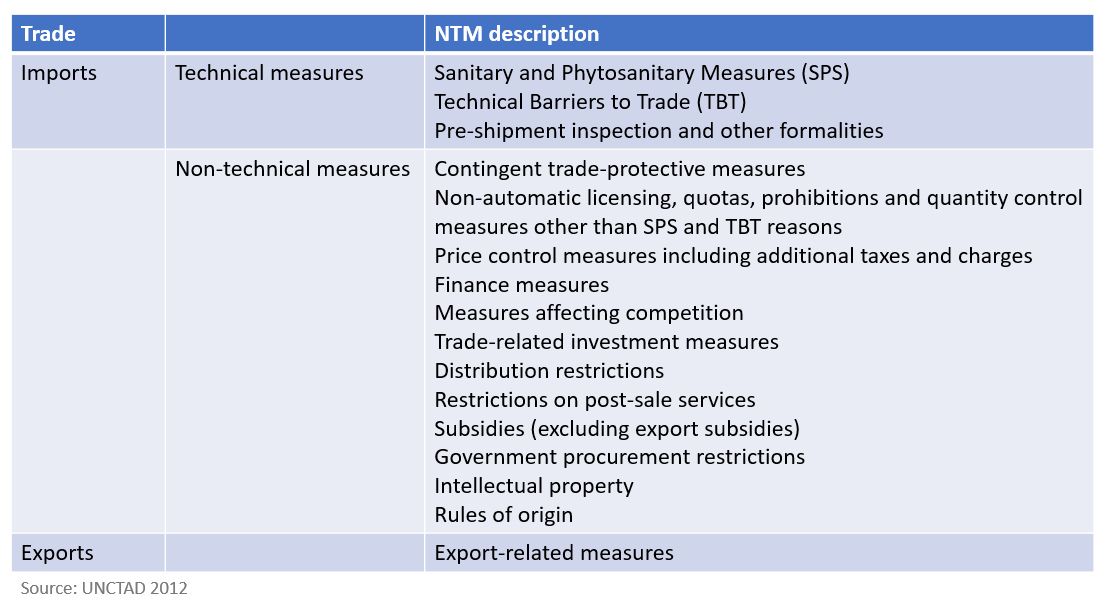Trade implications of Non-Tariff Measures (NTMs)
Tuesday, 19 July 2022
Non-tariff measures (NTMs) are defined as policy measures, other than ordinary customs tariffs, that can potentially have an economic effect on international trade in goods, changing quantities traded or prices or both.
Unlike tariffs, which are clear, transparent, and relatively easy to calculate per load, NTMs are complicated, opaque and very hard to calculate.
NTMs – also referred to as ‘trade friction’, or the ‘cost of doing business’ for exporters – consist of a variety of costs incurred when transporting goods from one country to another. Anything that slows the process down or adds costs to an exporter, compared to trading within a single market, may be referred to as trade friction.
Not all NTMs are bad. The main non-tariff measures relate to proving compliance with Sanitary and Phytosanitary Standards (SPS) and Technical Barriers to Trade (TBT).
SPSs exist to protect food safety and animal and plant life, whereas TBTs relate to technical regulations, standards, and conformity assessment for goods. Under WTO guidelines, neither are supposed to create barriers to trade (Non-Tariff Barriers or NTBs), but in practice this may often be the case.

Trading businesses can sometimes have to overcome considerable NTMs, amounting to large costs and delays. Because time costs money the delivery of goods has become tailored to specific orders, leading to ‘just-in-time’ food supply. Frictions to trade that result in delays are, therefore, particularly critical to rapidly perishable food. Delays in shipments caused by checks, administrations, inspections and border controls, could cause problems with this trade, and potentially lead to wastage of fresh meat in transit (Haverty, 2017). The Organisation for Economic Co-operation and Development (OECD) suggests that non-tariff frictions, particularly at the border, can be larger than the costs of the tariffs themselves for many commodities and trade routes. It states that customs compliance costs add 2% to 24% to the value of traded goods, with smaller businesses being disproportionately affected (Moïse and Le Bris, 2013). It also notes that the additional time taken to cross borders often adds up to even more, especially if it makes the goods valueless.
The impact of NTMs in the agri-food sector has been widely recognised in the literature and the different approaches to quantifying their impact identified. The issue is closely examined in the AHDB report ‘Red Meat Route to Market’.
NTMs will vary according to the level of trust between trading partners. Although SPS and TBT standards exist in all trade, trusted trading partners such as New Zealand and the UK may only physically examine 1 in 100 loads. Less familiar trading partners may check every load arriving on their shores, which will increase costs and delays.
As a general rule, Free Trade Agreements (FTAs) will lower NTMs between parties.


